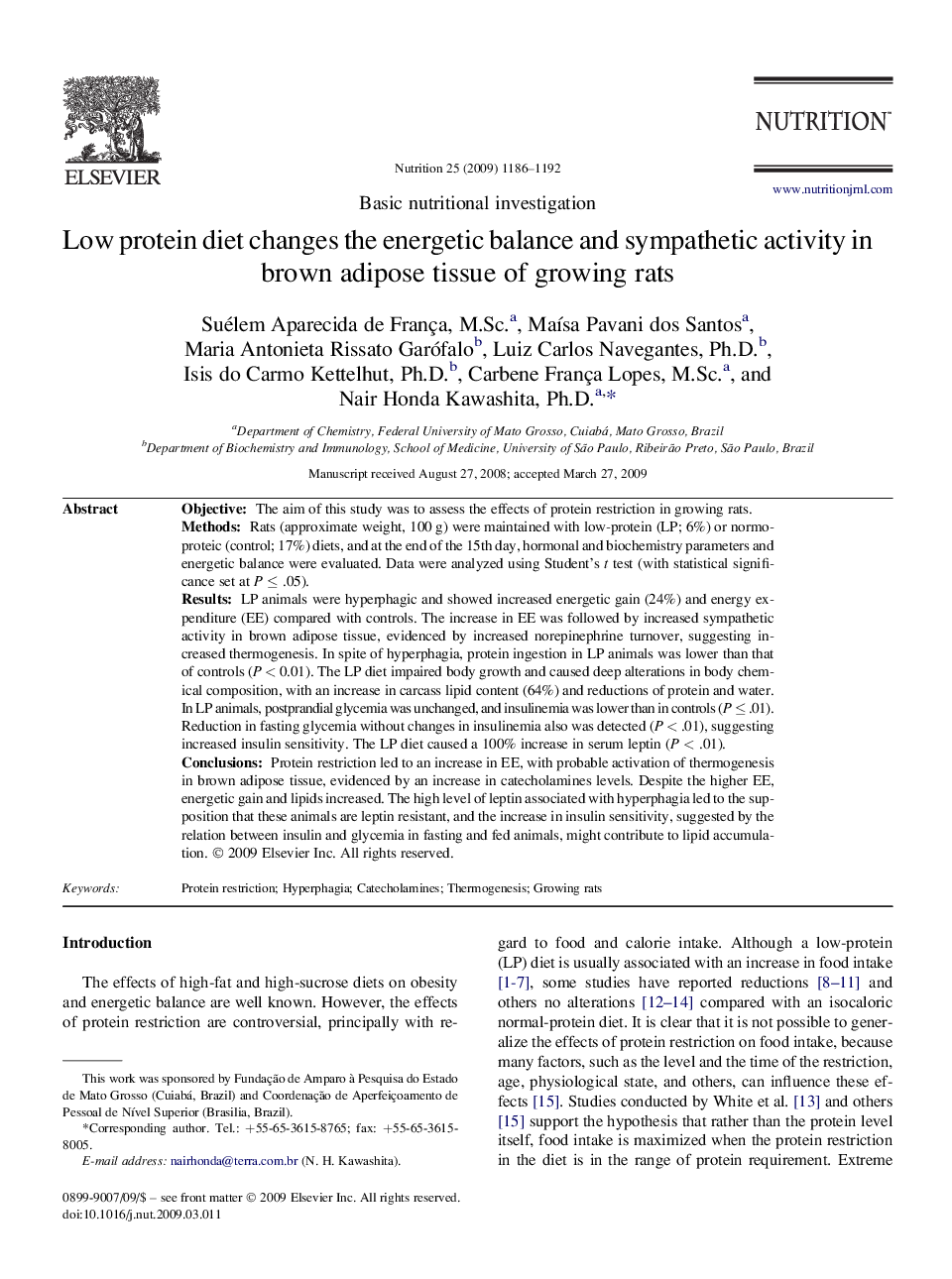| Article ID | Journal | Published Year | Pages | File Type |
|---|---|---|---|---|
| 3277239 | Nutrition | 2009 | 7 Pages |
ObjectiveThe aim of this study was to assess the effects of protein restriction in growing rats.MethodsRats (approximate weight, 100 g) were maintained with low-protein (LP; 6%) or normoproteic (control; 17%) diets, and at the end of the 15th day, hormonal and biochemistry parameters and energetic balance were evaluated. Data were analyzed using Student's t test (with statistical significance set at P ≤ .05).ResultsLP animals were hyperphagic and showed increased energetic gain (24%) and energy expenditure (EE) compared with controls. The increase in EE was followed by increased sympathetic activity in brown adipose tissue, evidenced by increased norepinephrine turnover, suggesting increased thermogenesis. In spite of hyperphagia, protein ingestion in LP animals was lower than that of controls (P < 0.01). The LP diet impaired body growth and caused deep alterations in body chemical composition, with an increase in carcass lipid content (64%) and reductions of protein and water. In LP animals, postprandial glycemia was unchanged, and insulinemia was lower than in controls (P ≤ .01). Reduction in fasting glycemia without changes in insulinemia also was detected (P < .01), suggesting increased insulin sensitivity. The LP diet caused a 100% increase in serum leptin (P < .01).ConclusionsProtein restriction led to an increase in EE, with probable activation of thermogenesis in brown adipose tissue, evidenced by an increase in catecholamines levels. Despite the higher EE, energetic gain and lipids increased. The high level of leptin associated with hyperphagia led to the supposition that these animals are leptin resistant, and the increase in insulin sensitivity, suggested by the relation between insulin and glycemia in fasting and fed animals, might contribute to lipid accumulation.
